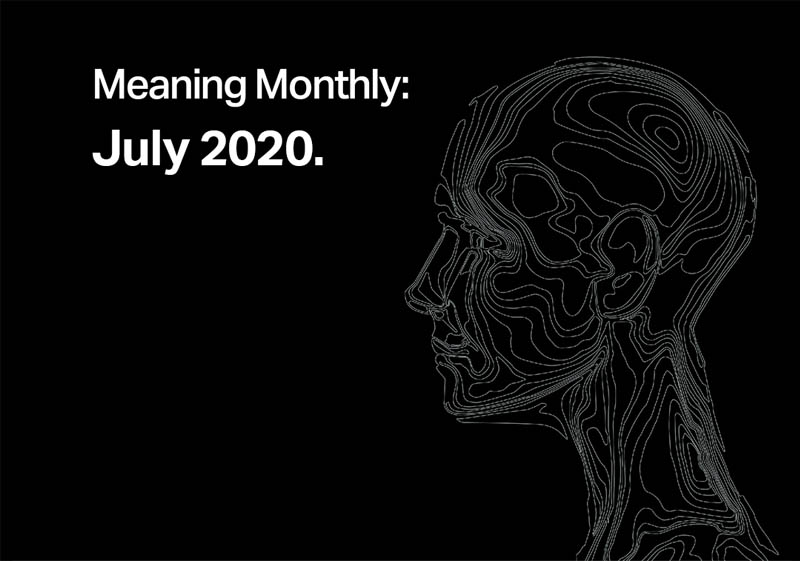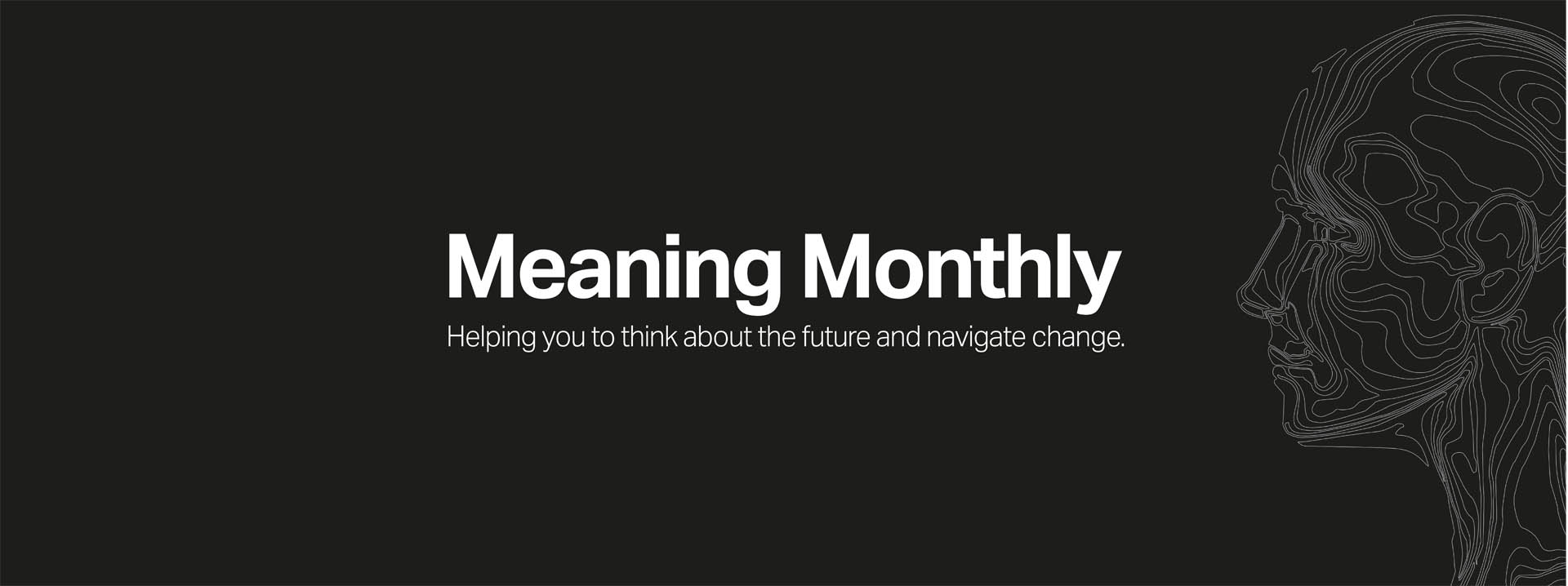
August 2020
COVID-19 has left us all with a sense of uncertainty. This month, our design and strategic insight teams have been working hard to decipher the disruption and what it means going forward. We’ve been investigating the changing attitudes towards data handling, techcelleration within healthcare and how our home environments are evolving to accommodate new pandemic-born behaviours.
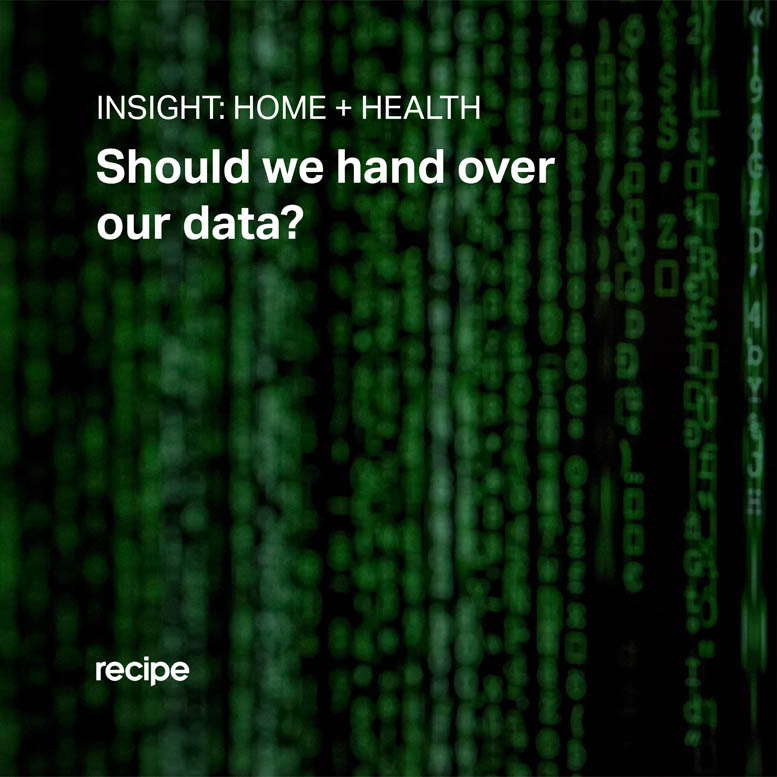
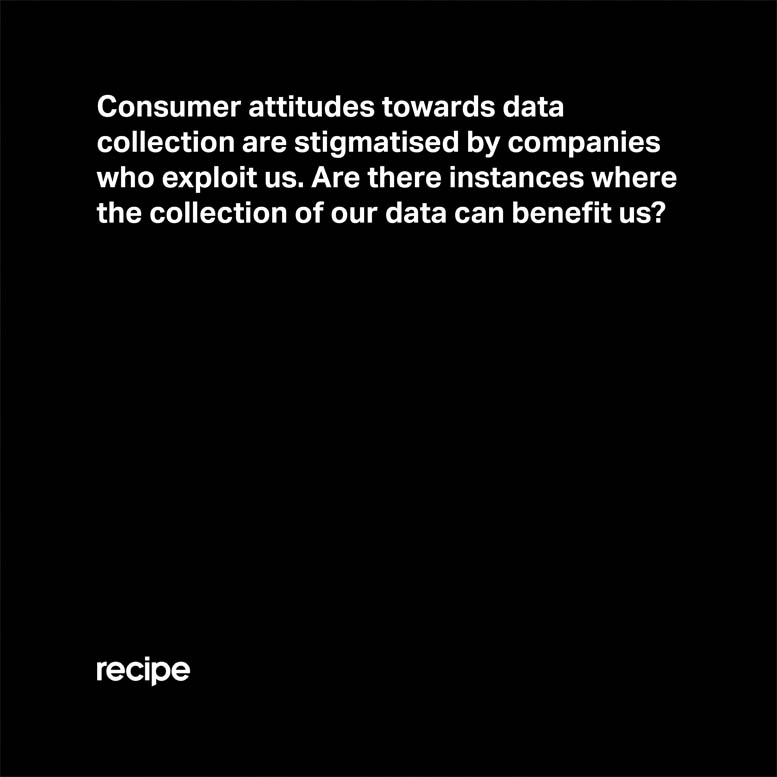
In recent years, consumers have been more aware and more critical of how their data is handled as new legislation is removing the ability for companies to hide or disguise when and why they collect data.
Despite the increasing openness, our data is still being used to encourage shopping habits and influence our political opinions. Although you can opt-out of certain data collections, some companies prevent use of their platforms - either wholly or in part - unless users relinquish their personal or usage data.
In healthcare, data collection is being used to gain a greater understanding of our collective health and inform the creation of new tools for diagnosis, assessment and treatment.
Although data collection is a sensitive issue, the benefits of its analysis for healthcare could have far-reaching benefits beyond an individual’s experience. How will our preferences and objections for data sharing differ depending on the data’s end use?
If you’d like to find out more about the future of data, we’ve written an article on data donation which you can find here: https://recipe-design.com/blog/entry/is-data-donation-the-future-of-healthcare
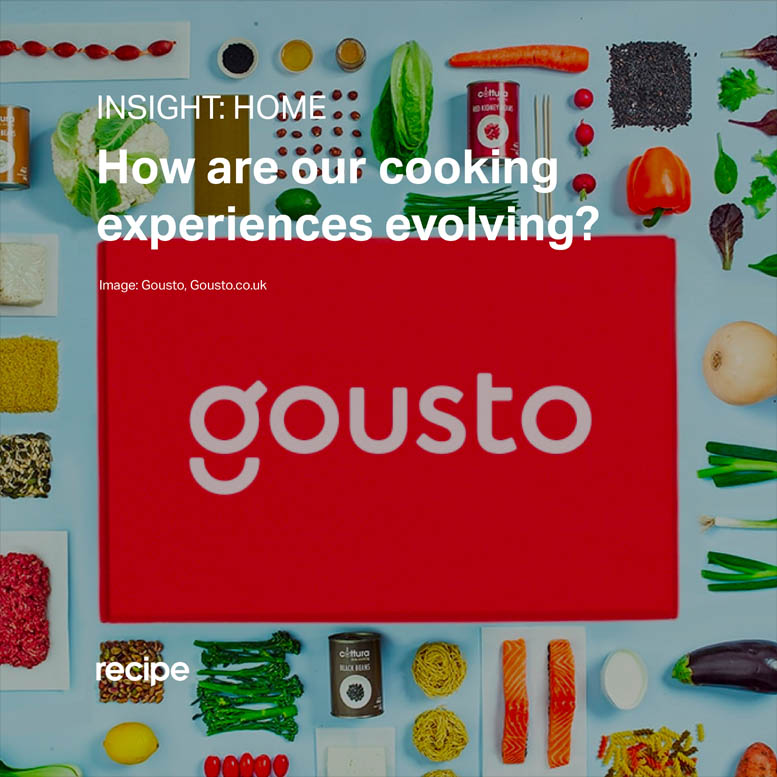
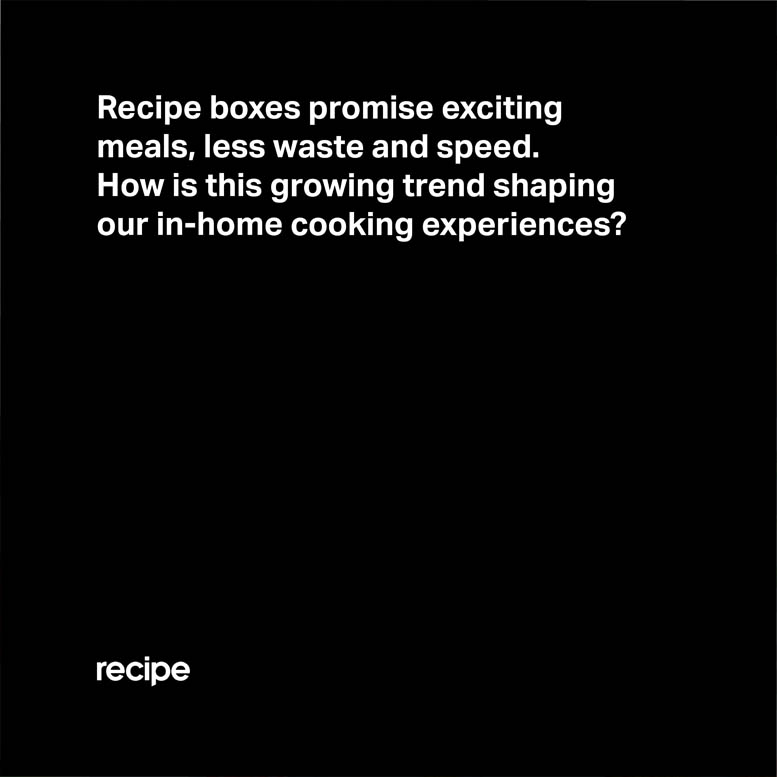
Within the UK, meal kits and recipe box services like Hello Fresh and Gousto are growing in popularity. Customers receive recipe cards and pre-portioned ingredients to enable quick, simple preparation of nutritious meals. These services are expected to exceed a market value of £1.5 billion by 2022 and Covid-19 may be pushing that estimate even higher.
The convenience and speed on offer is undoubtedly appealing in our time-poor society. They can also be a more sustainable option, reducing food waste with exact portioning. Plus with menus curated by trained chefs, the meals on offer combine nutrition with intrigue and excitement.
In our on-demand economy, services like these are likely to continue to flourish. As more analytics is layered-in, these boxes will be able to use our data to recommend dishes based on personal taste, or tailor a meal plan to our precise fitness goals and nutrition needs
Are these prescribed meal options the future of home cooking? Or will they continue to live alongside the spontaneous, intuitive, experimental joys of off-recipe cooking?
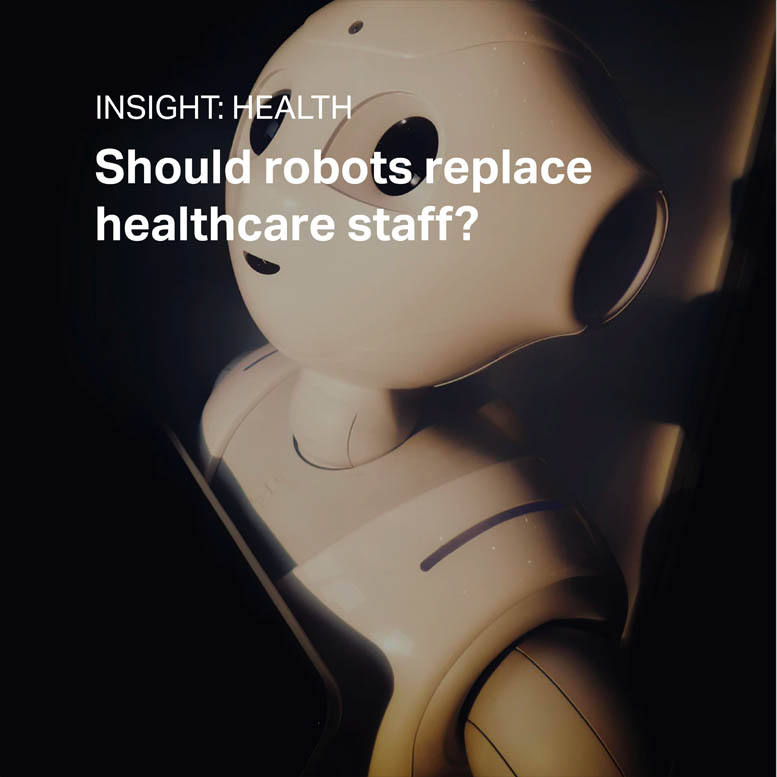
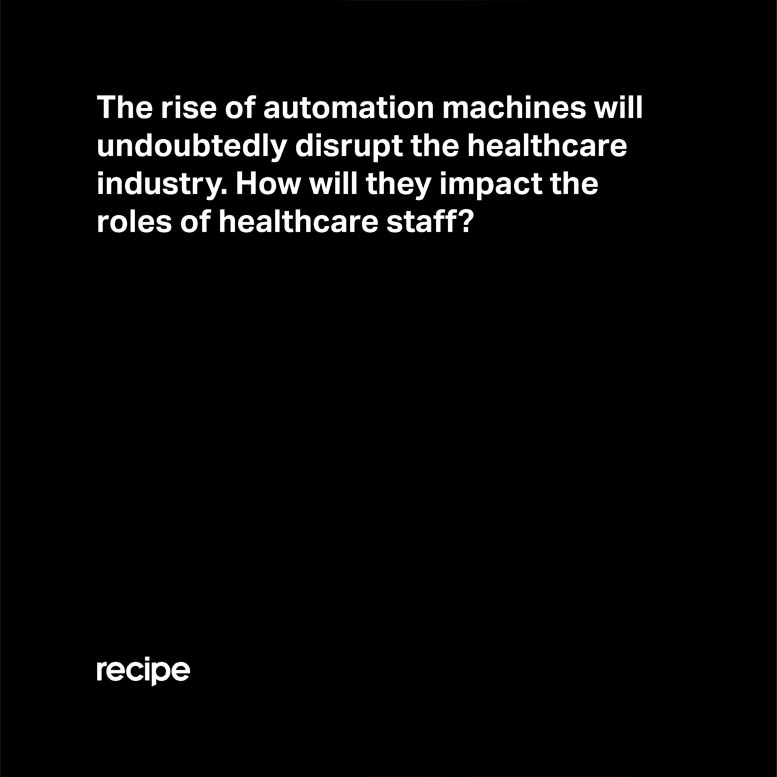
As robots are adopted into the workforce, there is increasing concern that numerous human jobs will be lost. Robots have the benefits of near-24/7 working, they can work with more data and make faster calculations without human error.
In healthcare, robotics and automated decision-making are already being trialed and used for tasks ranging from performing surgery and assessments, to medication dispensing and hospital cleaning.
However, their social and creative capabilities are not yet on par with human workers. Robots struggle with non-linear tasks or unexpected changes and they currently lack ‘real’ human empathy, an inter-personal skill that is crucial for HCPs.
Evidence suggests that robots will not replace healthcare staff, but work alongside them instead. Carrying-out complex quantitative tasks and data-led decision-making, allowing the HCP more time for the more ‘human’ tasks. But as automation advances and robots become more sentient, should we expect a decreasing need for healthcare staff altogether?
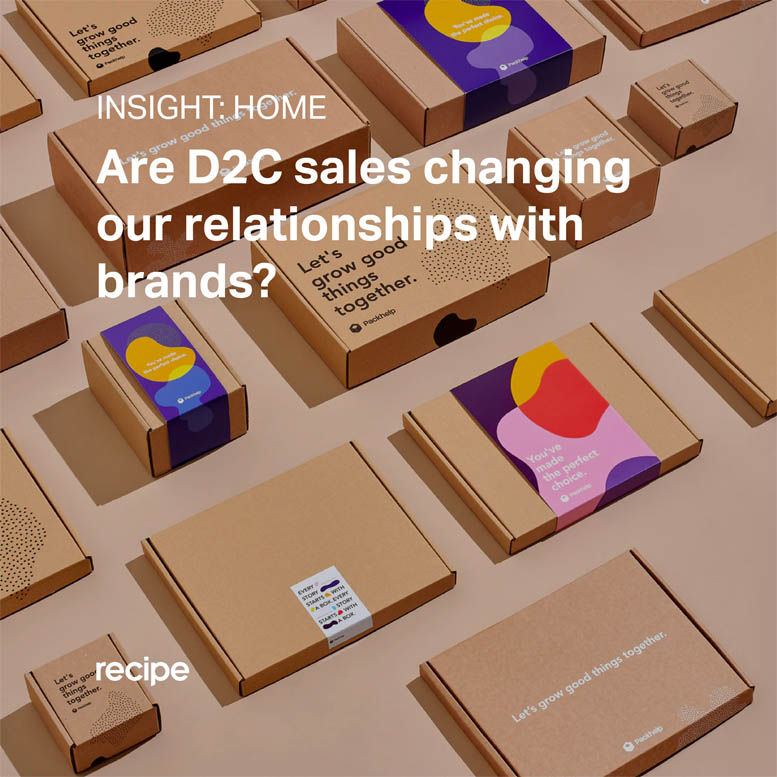
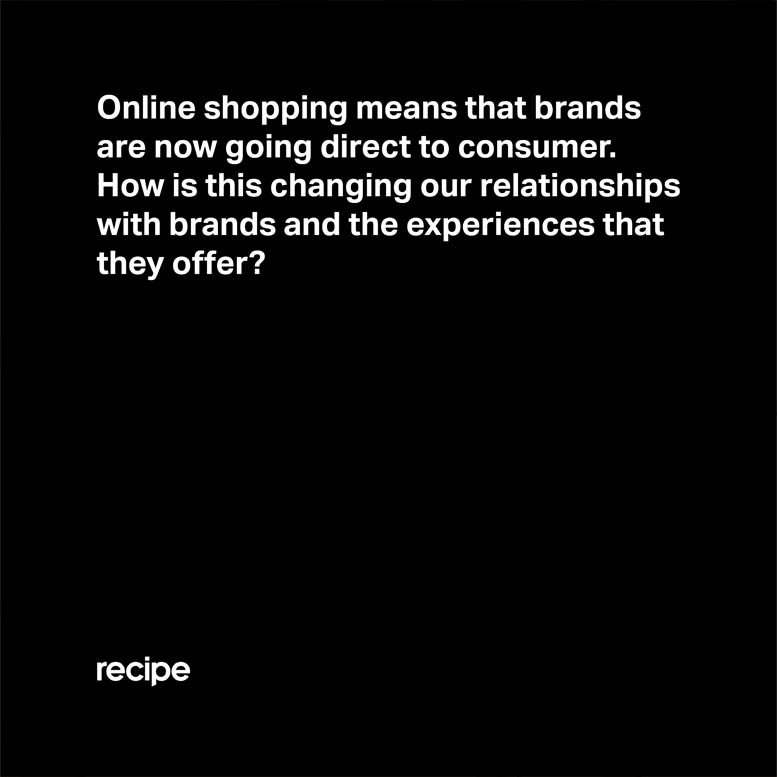
‘Direct to consumer’ describes a brand’s direct interaction with their customer base, rather than through third parties. With many consumers favouring e-commerce over physical stores - especially in light of COVID-19 - online sales have risen sharply, bringing more D2C interaction for brands.
In light of this, brands are having to reinvent themselves, re-designing and adding value to every touchpoint on the consumer journey - driving the need for competitive websites, engaging social media, smooth delivery options and seamless after sale services.
D2C also means that brands are having to facilitate unique and exciting in-home experiences, previously available in store. The power of story telling, creative packaging solutions and exciting subscription services have taken precedence.
As online shopping continues to rise, how will our relationships with brands change? How will they enable experiences and continue to engage with us in our homes?
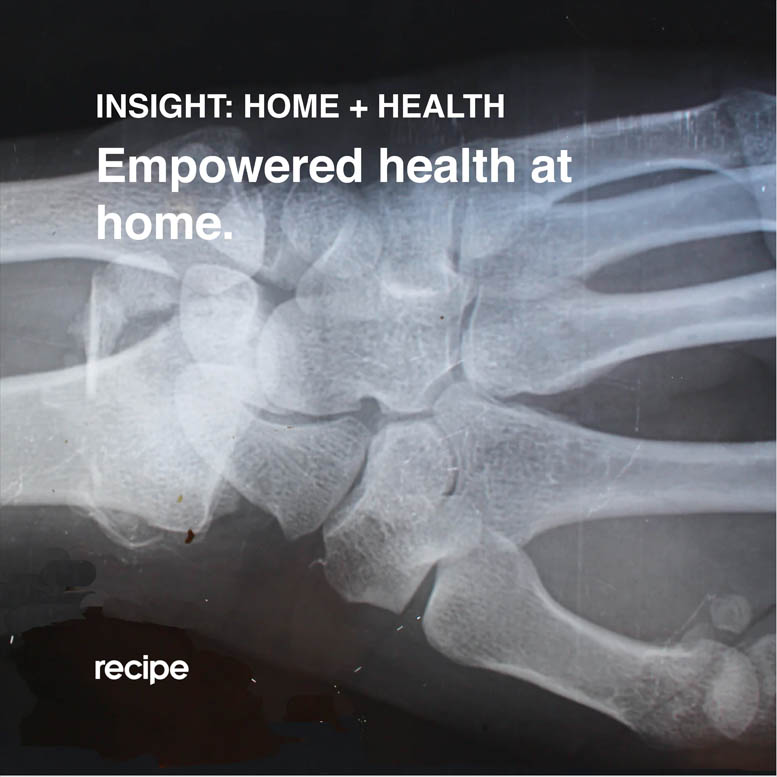
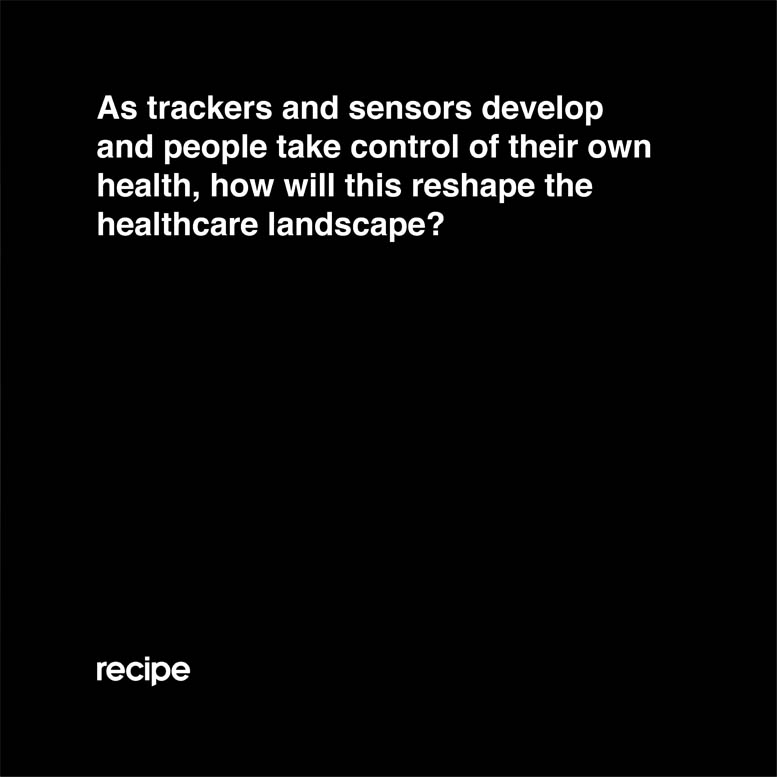
As products and systems become increasingly digital, one of the most useful, innovative and disruptive applications is healthcare.
Beyond the ability to video-call your GP, telemedicine can now utilise the data collected by our devices and wearables to remotely monitor our health, facilitate self-diagnosis and report back to healthcare professionals when necessary.
Apps are currently at the forefront of this shift, offering an accessible interface for health data management. But as new technologies develop, additional devices and systems will allow us to examine and treat ourselves at home. The expertise and capabilities of a medical centre, without actually having to visit one.
Apple’s enhanced watch sensors and Tyto Care’s at-home examination equipment are early examples of connected devices enabling progress towards empowered home healthcare. Future offerings will span and combine health trackers, domestic devices, smart home systems and intelligent algorithms to further optimise and refine home healthcare management.
As this new category of products and services continues to develop, how will this change the healthcare landscape, and the role of medical experts within it?
Previous month
July 2020
Meaning Monthly is our new monthly newsletter comprised of the top insights from our design and strategic insight teams. Focused around home and health, it will feature trends, observations, and consumer behaviours; allowing you to better understand the future of the industries.
Meaning Centred Design Assessment
Meaning Centred Design helps your business understand how people think about, perceive and understand what you stand for and what you have to offer.
MCD Insights can be mapped and translated into new propositions with the potential to make your brand more distinctive, more engaging and ultimately more valuable.
This assessment is an interactive online tool that will help you quickly assess your current situation. It takes less than 5 minutes to compl
